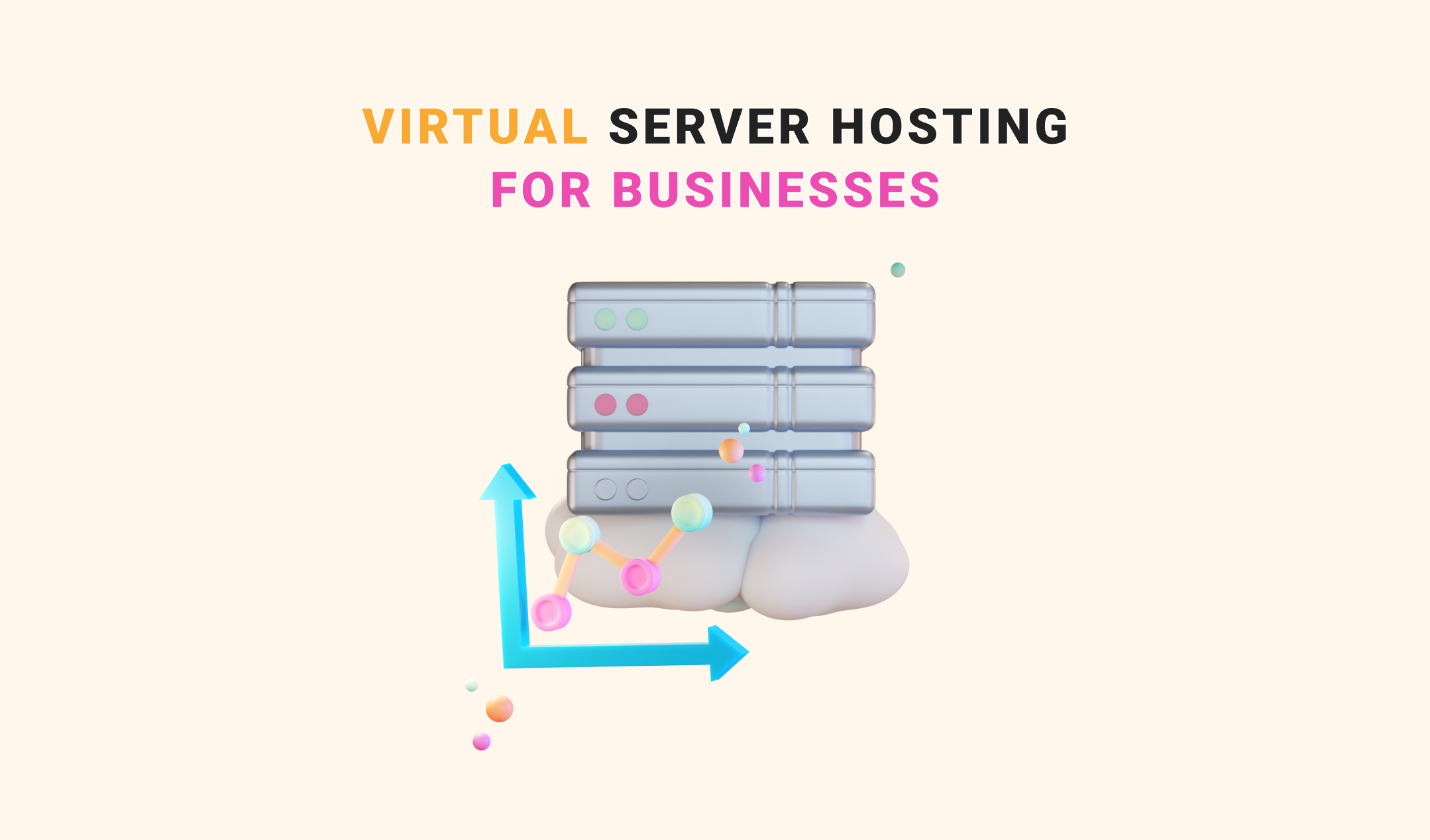Are you into the business of web hosting or any other profession related to it? Then, you must have heard about cloud or cloud VPS servers. Probably, you also have hints about virtual servers, virtual private servers, and cloud VPS servers. You can pick from several options as per your organizational requirements. Here, we are going to talk about cloud servers also known as VPS cloud servers or cloud VPS hosting.
We will discuss how cloud servers can be beneficial for your business. Also, you will get to know some of the best cloud VPS hosting providers in this post. Let’s start.
What is the cloud?
Let’s know the basics of the cloud so that you can easily understand VPS cloud servers. The process of storing, managing, and processing data online via a network of remote servers deployed
If you are planning to migrate your data to the cloud, you have two options; cloud dedicated or cloud VPS. The former is dependent upon physical servers and can be implemented instantly. These servers are ready to go because they are pre-configured and all their resources are virtualized.
On the other hand, cloud VPS servers are available as per your usage. You can purchase the cloud VPS service without installing a physical server.
What is a virtual private server?
VPS uses a pool of hosts or a dedicated server to allocate resources to the users. Virtual machines are operated with the help of a virtual machine manager or hypervisor, which is installed on a host. Each virtual machine on a parent server or host is called a child instance or guest.
What is cloud hosting?
In a traditional setup, you have a physical server that handles all the user accounts. Whenever any upgrade is required, you have to manually add storage, RAM, and computing power to the servers. But things changed once cloud hosting technologies came into
Cloud hosting comprises hundreds of interconnected computers over the internet working as servers. Therefore, your site never slows down or stops because of multiple backups. Moreover, you can enjoy maximum uptime and on-demand resource distribution. Do not think the cloud has a hosting service. Instead, it’s an infrastructure setup.
What is cloud VPS hosting?
Let’s understand a typical VPS configuration. You have a physical server, which is separated into multiple virtual instances by the web host. Every instance or VPS account gets its share of CPU, memory, and storage. Once the resources are allocated, the clients feel they are using a dedicated server.
However, the VPS accounts are restricted to the resources allocated by the web host. It’s where cloud VPS is helpful. A server based on the cloud offers an endless pool of computing power, which means it can easily handle significant spikes. Moreover, the vast computer network helps you to scale at will. Let’s know the cloud hosting architecture for better understanding.
Cloud hosting architecture
The cloud hosting architecture comprises the following components.
- Front end: Generally represented by a GUI (graphical user interface), the front end allows the clients to perform essential tasks. The front end is only responsible for facilitating user interaction.
- Back end: Back end is the biggest part of cloud hosting architecture. It checks the requests processed by the front and ensures their smooth running. This component consists of a significant amount of data storage systems, interconnected servers, and much more.
- Application: All the platforms and software used by the clients are included in the application. As a user, you might not find any difference between a standard website and a cloud-based app. The real difference is the back-end handling. All processing and data storage is tackled by the cloud, instead of a physical server.
- Service: This component includes all the cloud-based services the client utilizes. It comprises all the services the clients use with the data storage and web services in cloud hosting setups.
When we talk about services, cloud computing has different patterns to deliver them. Let’s check the essential services that you might encounter.
- Software as a service (SaaS): Generally you have to download, install and store an app locally on your computer. But, the scenario is different in a SaaS model. Here the apps are hosted over the cloud. You can enjoy the SasS applications over the internet. Dropbox and Google apps are some of the most used examples of SaaS apps.
- Platform-as-a-service (PaaS): The second service is similar to SaaS, but PaaS gives you an entire platform. You simply have to focus on software deployment because the provider takes care of everything else, including server, storage, and network. Microsoft Azure and Magento Commerce Cloud are the best examples of PaaS.
- Infrastructure-as-a-service (IaaS): The last cloud service is a complete package. The service provider offers everything in this plan, including the server, network, and all other components. AWS VPS server and Google VPS server (Google Cloud Compute Engine) are suitable examples of IaaS.
Now we know all the basics of VPS cloud hosting. Let’s understand its benefits.
- Dedicated resources: If you have ideas about the physical servers, then you might see several similarities between them and the VPS cloud servers. The latter is not in-house. Still, it offers the same advantages.
The biggest benefit is access to allocated resources. You will be the only one using the cloud VPS server. In other words, your company will not share any of the resources, including memory, computing power, and storage.
- Higher security: It’s another department where VPS Cloud servers mimic their physical counterparts
. You are the only one using the server. Hence, the chances of a data breach are almost zero.
If you compare the security standard with shared hosting, then VPS cloud hosting wins. Multiple clients are sharing the resources. So, the threat of cyber threats is higher in such an environment. With several organizations using the same resources, you cannot stay safe from digital crimes. Moreover, each of these companies might have several employees accessing the shared network at their terminal. Such a setup is easy to crack for hackers.
In addition, you get root access in case of a cloud VPS server. It’s the master user that lets you enter the system. The inclusion of root access is a top-class security measure because it’s the main target of online criminals.
- Zero compromises: A shared hosting could be a challenge if any other company in the pool grows to use a considerable amount of memory and storage. What is the result? Your website or app will load slowly, resulting in a high bounce rate.
- Complete control: Changing the resources in a public or shared cloud hosting environment is a lengthy process because you have to contact a third-party service provider. Things are different in the case of cloud VPS. It gives you control of the dedicated resources. As you are the only tenant in this house, you are the decision-maker. Use the resources as you like and never feel the lack of power, memory, or storage for applications and websites.
- Speed: Speed is a crucial factor in determining the overall user experience. Your application, eCommerce store, and website have to act according to the users and they need everything as fast as possible. It’s where cloud VPS comes to your assistance.
Your site never slows down on a Google VPS server because it gives you the entire disk space, memory, and computing for your business. Moreover, such a VPS server allows you to add more resources as your brand grows. Hence, you don’t have to compromise on speed even if it’s accessed by millions of users.
- Maximum uptime: Availability of your website is never a concern until it’s hosted on a cloud VPS server. Everything works fine even if your physical server is faulty because the cloud has multiple instances of your site. Hence, a cloud VPS server is perfect for mission-critical projects.
- Customizable firewall: Most reputable cloud service providers give you a firewall for your peace of mind. So, if your website is hosted on an Oracle VPS or AWS VPS server, your digital assets
will have a high level of protection. The firewall never interrupts any of your day-to-day business operations.
- High scalability: The cloud VPS servers let you monitor the resource consumption. So, you can add more whenever the limit is reached. In other words, it’s easy to add RAM, storage, or computing power in a cloud hosting. So, it’s perfect for fast-growing websites.
- Disaster recovery and backup: These two factors are important to consider, especially if you want to reduce downtime. A cloud hosting solution gives you multiple options to create backups of your sites and use them whenever required.
Final thoughts
The Cloud VPS servers offer the best of both worlds, cloud, and VPS. It also allows small and medium-sized businesses to compete with their larger counterparts in terms of speed and scalability. You can try Hostinger, AWS, or Google VPS servers because these are the best cloud VPS hosting providers.











